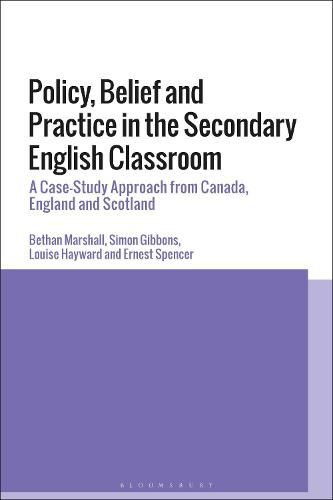Readings Newsletter
Become a Readings Member to make your shopping experience even easier.
Sign in or sign up for free!
You’re not far away from qualifying for FREE standard shipping within Australia
You’ve qualified for FREE standard shipping within Australia
The cart is loading…






Studies of comparative classroom practice in the teaching of secondary English are limited, especially when it comes to exploration of the day-to-day practice of English teachers in the secondary classroom. This book presents a case study analysis of secondary classroom practice in three countries: Canada, England and Scotland. Each country has had different degrees of state involvement within the secondary English curriculum over the last twenty years. England has had the highest degree of state involvement in that it has had several statutory national curricula and a variety of assessment regimes. Scotland has had a non- statutory curriculum and no national tests and Canada has had no national curriculum at all, with education being determined at province level, and each province varying its policies.
The research adopts a case study approach involving both classroom observation and interviews with teachers. Through this, the authors explore the impact of state involvement on the reality of what happens in secondary English classrooms. The book invites readers to consider the applicability of the findings to their own contexts, to examine their own practice in the light of this and to consider the nature of the relationships between policy, personal belief and practice in the teaching of English.
$9.00 standard shipping within Australia
FREE standard shipping within Australia for orders over $100.00
Express & International shipping calculated at checkout
Studies of comparative classroom practice in the teaching of secondary English are limited, especially when it comes to exploration of the day-to-day practice of English teachers in the secondary classroom. This book presents a case study analysis of secondary classroom practice in three countries: Canada, England and Scotland. Each country has had different degrees of state involvement within the secondary English curriculum over the last twenty years. England has had the highest degree of state involvement in that it has had several statutory national curricula and a variety of assessment regimes. Scotland has had a non- statutory curriculum and no national tests and Canada has had no national curriculum at all, with education being determined at province level, and each province varying its policies.
The research adopts a case study approach involving both classroom observation and interviews with teachers. Through this, the authors explore the impact of state involvement on the reality of what happens in secondary English classrooms. The book invites readers to consider the applicability of the findings to their own contexts, to examine their own practice in the light of this and to consider the nature of the relationships between policy, personal belief and practice in the teaching of English.